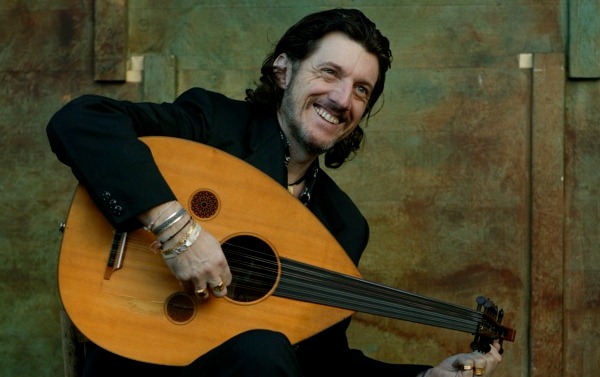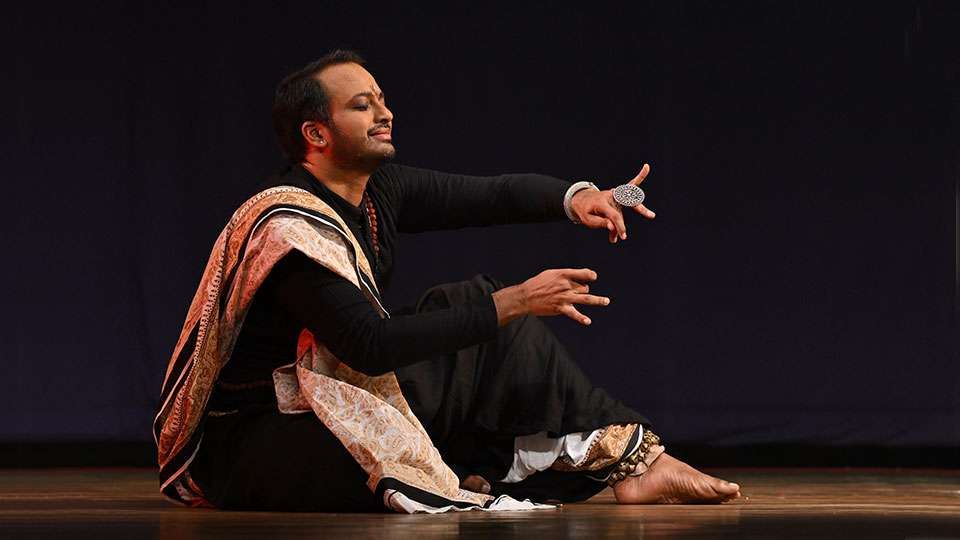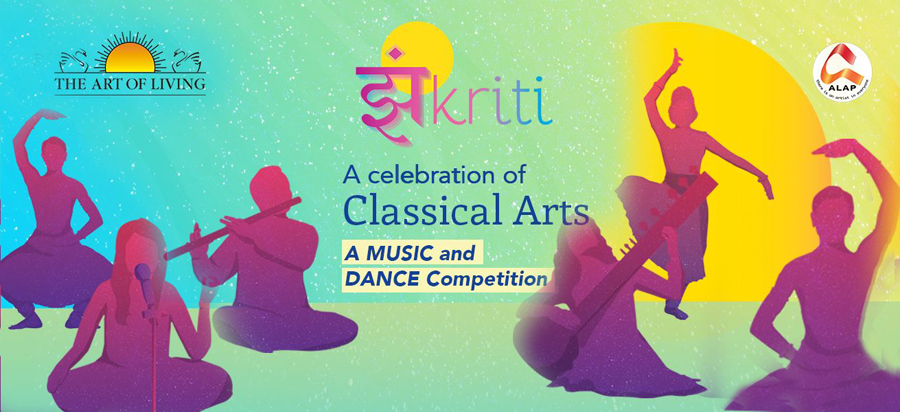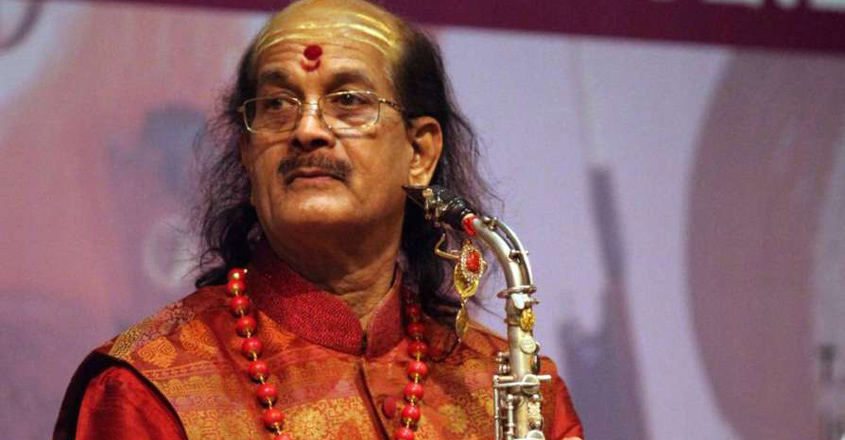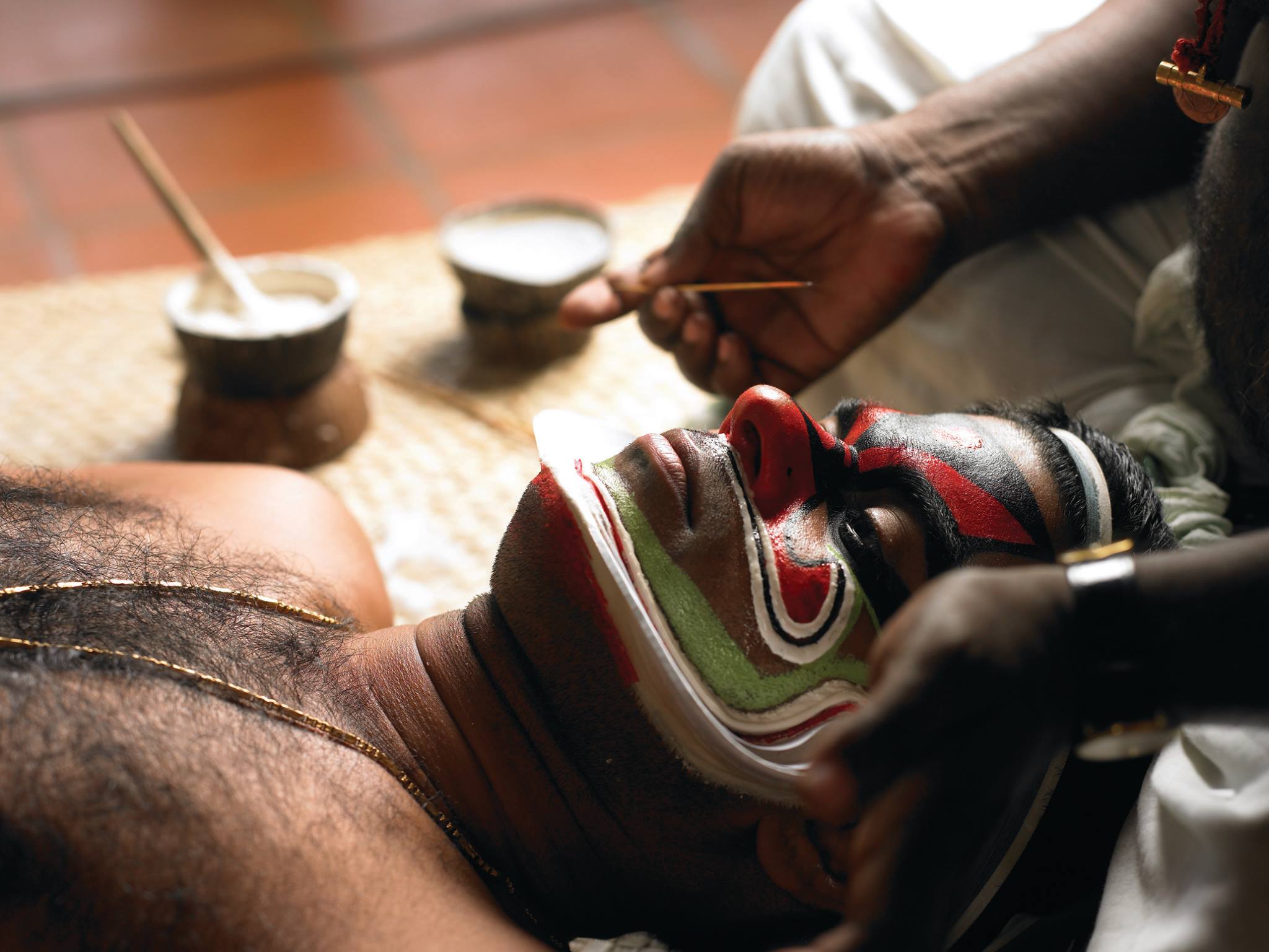Titi Robin, a Paris, France based music composer and improviser is known for his distinct style of music. Robin who has been fascinated with world music and the folk traditions that form the music in various parts of the world, has always tried to incorporate varying genres, sounds, instruments and even languages in his music. An accomplished musician who has mastered several instruments, Robin is deeply influenced by Indian classical music too. He writes his poetry in French and gets in translated in Hindi and incorporates French and Hindi lyrics in his performances.
Back in the 1980’s Robin who was introducing the Europeans to the sounds of Mediterranean music, a genre not so explored back then in Europe, also found the fascinating aspects of classical Indian music. Back in 1984, he composed a duet with Indian tabla player Hameed Khan. In between dabbling with the sounds of oud, buzuq and various African and Arab influences, he also found a distinct symphony in Rajasthani folk. Titi Robin has worked with Gulabo Sapera and has also written a book about her titled Gulabi Sapera, danseuse gitane de Rajasthan.
He has also released an album with her featuring kalbeliya music. Robin is constantly working with artists from India and other lands full of musical traditions.
He talks to ClassicalClaps on his love for Indian classical and how music transcends boundaries.
What would you say about the various Indian inspirations in your music?
Titi: For me, music is a universal language. When I find any form or genre fascinating I do not think about it as to how to incorporate it. For me, it is about finding your own path through that music. For instance, when Vincent van Gogh was painting, he doesn’t think he was approaching anything as an inspiration or fusion and how to express it in his artwork. He was simply finding his way through it. For me too, everything inspires me be it poetry, art, philosophy and all of it finds a natural extension in my music.
You are currently working with some Indian artists and are also incorporating Hindi lyrics in your music. What’s the reaction of people in France?
Titi: I would say they are very interested and intrigued. Often post the show, people come and ask me what do the wordings meant. When I am in France people are fascinated with Hindi and when it is an Indian audience, people want to know more about French poetry. It is a happy assimilation. I compose my lyrics in French and then parts of it are translated into Hindi and Urdu which we incorporate in our music. This just gives a fuller, richer meaning to my music.
How did you discover Indian music?
Titi: Back in the 70s I was listening to Pandit Ravi Shankar in France. A lot of people back home in Paris were fascinated by his music. My quest for newer sounds led me to discover many instruments and around the 80s I decided to collaborate with Hameed Khan on tabla. For many lovers of music, it was a wonderful balance of music. I then also collaborated with Gulabi Sapera who brought in her individual style. All these journeys have been very fulfilling because we have kept the essence of music alive.
You seem to be keenly interested in Hindi and Urdu?
Titi: Yes, I am and I can say the common words such as Namaskar and Shukriya. I also understand some of it. It is a beautiful language and has a lyrical quality to it.
What are your latest collaborations with Indian artists?
Titi: This past month we performed in Paris with a group of musicians that also included Indian classical musicians Murad Ali and Shoaib Hasan. While we kept the music French with parts of Hindi, there was sarangi music that lent a unique touch. I would say that appreciation towards trying to understand Indian instruments such as sitar or tabla or sarangi has grown in recent times. Today when people listen to a new instrument, which they may not have encountered in their past of the world, they want to know more about it. Also, the definition of fusion is no longer just jamming of music together. Those who appreciate good music want to see equal importance given to each genre.

By having artists of various origins perform along with you, is there any message that you want to give through your music?
Titi: Music definitely speaks the universal language and is effective in conveying current social issues. Through my music, I want to express how there is no place for violence in the world. We need to talk about immigrant issues and nothing can express it more effectively than diverse music. It is a channel to let people understand and acknowledge the happenings around them and hopefully be inspired to do better.



